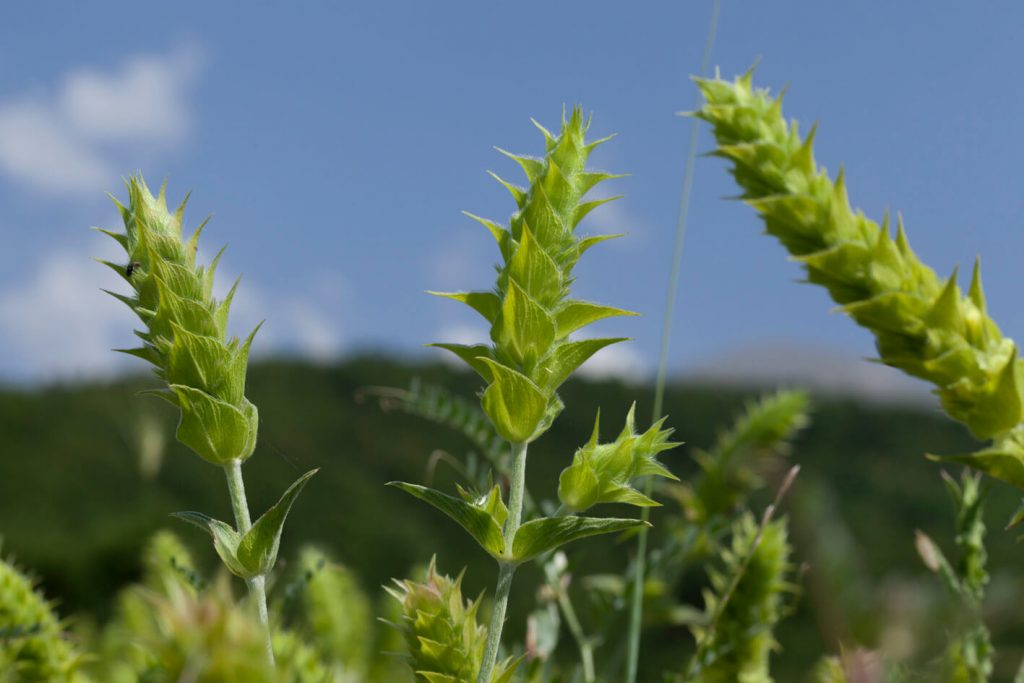 Items
Items


More and more recent scientific studies show that a high percentage of neurotransmitters are produced in the digestive tract (even a 90 percent), not in the brain. Moreover, the neurotransmitters responsible for our physical and mental well-being are formed from the amino acids contained in a diet based on healthy foods.
On the contrary, a diet based on processed foods, inflammatory foods, and chemical-laden foods produces neurotoxins that have a direct damaging impact on our mental and emotional health. What foods should we avoid or incorporate into our diet?
FOOD FOR BETTER EMOTIONS
Among the essential foods for our mental well-being, a special mention should be made of those that contain tryptophan, since the body produces serotonin from this essential amino acid. Serotonin is a neurotransmitter whose function is involved in controlling emotions, mood, regulating the feeling of satiety, etc. What foods are the key for our daily menus? Complex carbohydrates like oats, brown rice or quinoa; legumes such as chickpea; potatos; dried fruits such as almonds, walnuts or hazelnuts; eggs, in this case mainly in the yolk; turkey and chicken are good examples.

OMEGA 3: AN ALLY
Another essential substance for our mental health is Omega 3: remember that the brain is made up of approximately 50% fatty acids of which 33% belong to the family of Omega 3. Its deficiency can cause irritability, mood swings, mental and emotional imbalance… For example, there is a clear relationship between Omega 3 deficiency and postpartum depression, since during pregnancy the baby “steals” the mother’s docosahexaenoic acid to form neural connections. For this reason, supplementation with Omega 3 can be tremendously beneficial (you should consult with your doctor). Omega 3 is naturally found in foods such as fish, especially salmon, sardines or mackerel, and also in plant foods such as chia or flax.
VITAMIN B, PREBIOTICS AND PROBIOTICS
B-complex vitamins are also essential, especially vitamin B12 and B6. Vitamin B12 deficiency can have serious consequences such as depression, insomnia and mental slowness: this vitamin is found directly in foods of animal origin such as eggs, fish or meat, so its supplementation in vegan diets is adequate. On the other hand, vitamin B6 or pyridoxine is a cofactor of serotonin, which must be present to carry out the conversion of amino acids into serotonin so, in addition to amino acid biosynthesis, and it also participates in important metabolic processes.
Brain health is literally “made” in the gut: you can’t worry about intestines health without mentioning the role that prebiotics and probiotics play in keeping us in tip-top shape. Prebiotics favor the development of symbiotic bacteria inside our intestine: we can find them mainly in green leafy vegetables, red fruits, bananas, onions or garlic. Probiotics are mainly found in fermented foods as these contain live microorganisms or “friendly” bacteria that support gut health. They are found in yogurts, kefir, miso, etc. It is very beneficial to take a good probiotic supplement on those occasions when an antibiotic is being ingested, since these decrease the intestinal flora to a greater or lesser extent.
VITAMIN D
What could be say about this vitamin D, whose function in the body is so important that it has been functionally compared to a hormone? However, the deficiency of this vitamin in the world population is alarming since it causes important problems such as depression, nervousness, pessimism or loss of bone density, among many others.
Our recommendation is to carry out an analysis that allows determining the existing deficit and the adequate dose in its supplementation, if necessary. This vitamin is obtained mainly from the sun (Mediterranean sun is always an option if you can visit us) and from foods such as fatty fish, cod liver oil, egg yolks and dairy products, among others.
PHYTOTHERAPY
Herbal medicine also offers us help options to combat mild or moderate depressive states. Indeed, the plant grown in the wild, known as St. John’s Wort (Hypericum perforatum) that contains bioactive principles, among which hypericin and hyperforin stand out with anxiolytic and antidepressant properties since antiquity. However, the consumption of this herb is not without possible interactions with some medications and adverse side effects (always consult your doctor).
HONEY AND MOUNTAIN TEA WITH DITTANY
Fortunately, honey is a precursor to serotonin: hence the custom or tradition of our mothers and grandmothers to give us to drink a glass of hot milk with honey before going to sleep, since both components are precursors of serotonin, and melatonin is produced from serotonin, which is responsible for our rest and that we rest well.
Greek Organic Mountain Tea and Dittany is a true invigorating option. Dittany, also endemic to Crete, has been used medicinally for centuries, to promote improved digestive function and alleviate gastrointestinal discomfort. Both of these medicinal herbs are an integral part of the Cretan diet, which is scientifically recognized for its high nutritional value and contribution to well-being and longevity.
If you want to know more about Symbeeosis functional products you can visit this link to know more.
Choose up to two answers

